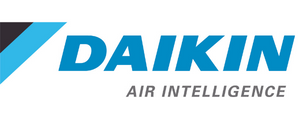2023 Forum Program
We will not be publishing speaker presentations on the website but if there is a specific presentation you are interested in, please email leada@newbuildings.org.
Wednesday, May 10, 2023
9:00 AM-12:30 PM
Workshops
An Interactive Journey to Building Essential Embodied Carbon Knowledge (3.5 AIA LU|HSW CEUs)
This interactive workshop will take attendees on a journey to uncover strategies for reducing embodied carbon in building design and construction, and jurisdictional policies.
The Nuts and Bolts: Coming to an Understanding on Equity and Equitable Decarbonization (3.5 AIA LU|HSW CEUs)
Join Midwest Building Decarbonization Coalition for an in-depth and hands on workshop on equitable decarbonization in which participants will be challenged to consider the specific road blocks in their work for equitable implementation and how to take action.
2:30 PM-3:45 PM
Opening Plenary Session
Investing in Progress: How Federal and Philanthropic Support are Spurring Equitable Climate Action
As urgency for climate action grows, more resources are available than ever before to enact change. Two significant sources of support are federal and philanthropic investments. We welcome Andrew Mayock, Federal Chief Sustainability Officer, and Tonya Allen, President of the McKnight Foundation, to open the 2023 Getting to Zero Forum to discuss building decarbonization strategies, the importance of environmental and racial justice, and how they are making investments to achieve ambitious climate goals equitably.
Introduction and Welcome: Kim Havey, City of Minneapolis
Moderator: Ralph DiNola, New Buildings Institute
Keynote Speakers:
Tonya Allen, McKnight Foundation
Trisha Miller, White House Climate Policy Office
3:45 PM-4:15 PM
Exhibitor Showcase + Networking Break
4:15 PM-5:45 PM
Breakout 1 Sessions
Developing an Equitable Building Performance Standard (1.5 AIA LU|HSW CEUs)
Room: Ballroom 3
Many different stakeholder groups must be engaged in the community planning process to create policies and programs that achieve their goals. Every stakeholder group has different values and objectives, and they must all be balanced to arrive at consensus in an equitable manner. This session will allow participants to think outside their everyday perspective and temporarily adopt a new role. Participants will split into stakeholder groups to discuss their unique perspectives, motivations, and concerns before engaging in a mixed-stakeholder discussion to respond to a real-world building performance standard.
Facilitators:
Andy Winslow, NEEP
Carolyn Sarno Goldthwaite, ClearlyEnergy
Maggie Kelley Riggins, SEEA
Maddie Liput, MEEA
Building Communities that Survive and Thrive (1.5 AIA LU|HSW CEUs)
Room: Ballroom 4
The built environment encompasses much more than glass, concrete, and I-beams, which is why targeting net zero carbon is not enough. Even when constructed to meet high performance standards, the built environment can impact health outcomes and exacerbate inequality. This session presents resiliency strategies that range from design interventions on the building scale to thinking about critical services like healthcare and protecting vulnerable populations. Presenters will uncover intersections of health, equity, and resiliency that position communities to thrive while advancing decarbonization goals.
Moderator: Elin Shepard, Energy Trust of Oregon
Speakers:
Alex Wilson, Resilient Design Institute | Daniel Overbey, Browning Day/Ball State University
Bethany Beers, Mazzetti | Christina Sanborn, Mazzetti
Elin Shepard, Energy Trust of Oregon | Chris Lowen, Glumac
How Smart Building Tech Can Transform the Grid, Cut Carbon, and Unlock Resiliency (1.5 AIA LU|HSW CEUs)
Room: St. Croix 1
The role of buildings, renewable energy, and energy storage in the utility industry is changing. The grid of the past, dominated by one-way energy flows from large, centralized power plants (usually powered by fossil fuels), will not be sustainable with the growth of distributed energy resources (DERs) and emphasis on carbon emissions reductions. With this shift, the impact of individual buildings on the grid is becoming more important. This panel will provide expert insight into optimizing buildings as grid assets: exploring the interactive effects of energy efficiency and demand response, tuning onsite energy storage use to carbon intensity, and designing a microgrid for an electrified city block.
Moderator: Karina Hershberg, PAE
Speakers:
Lisa White, Phius
Jess Siegel, Cadeo
Matt Roberts, UC Berkeley
From Cradle to Grave (and Back Again): Decarbonizing the Lifecycle of Materials (1.5 AIA LU|HSW CEUs)
Room: Deer/Elk Lake
In this decade of action, our future building with low carbon depends on everything from site selection to material selection. Presenters will provide case studies of all sizes including utilizing local and bio-based products, designing with space efficiency to achieve ultra-low carbon buildings, and existing building reuse. Hear about new research as well as practical strategies for making informed decisions about embodied carbon, ESG financing challenges, and achieving equitable outcomes.
Moderator: David Arkin, Arkin Tilt
Speakers:
Annie Perkins, Sustainable Forestry Initiative | Monte Hilleman, Saint Paul Port Authority
Abby Meuser-Herr, Precipitate | Geoffrey Warner, Alchemy Architects/weeHouse
Chris Magwood, RMI
A Household Name: Achieving Residential Electrification Programs at Scale (1.5 AIA LU|HSW CEUs)
Room: Trees
The residential sector represents significant challenges and huge opportunities to decarbonization. With recent Federal investments in decarbonizing this sector, scalable interventions to augment and diversify market penetration of electrification technologies are a higher priority than ever across the country. This panel will bring together experts who have designed, tested, implemented, and scaled programs targeting residential decarbonization to share successes, challenges, and recommended approaches based on their experience. Topics discussed will include effective program design, contractor engagement strategies, and pairing funding mechanisms, including grant funding and incentive programs, to increase deployment of electric technologies in the residential sector.
Moderator: Mari Ojeda, Fresh Energy
Speakers:
Myriam Tourneux, VEIC
Jen Loomis, Opinion Dynamics
Shweta Sanjeev, Building Decarbonization Coalition
Thursday, May 11, 2023
8:00 AM-9:00 PM
Networking Breakfast + Exhibitor Showcase
9:00 AM-10:30 AM
Breakout 2 Sessions
Prioritizing Affordable Multifamily Housing in the Energy Transition (1.5 AIA LU|HSW CEUs)
Room: Ballroom 3
An equitable and just transition towards building electrification requires prioritizing and addressing barriers to electrification for low-income communities at the outset. This also includes prioritizing the production and preservation of affordable, climate-friendly homes across the country. Today, 26 million low-income homes reliant on fossil fuels face energy insecurity, lacking the resources for more efficient and healthier appliances such as heat pumps and induction stoves. This session will explore how upgrading low-income multifamily subsidized and unsubsidized housing can reduce existing energy burdens across the market. Participants will workshop creative solutions, rooted in the nuances of several housing ownership models and financing regulations that govern them, to determine potential solutions to existing market challenges.
Speakers:
Srinidhi Sampath Kumar, RMI
Krista Egger, Enterprise Community Partners
Lauren Westmoreland, Stewards of Affordable Housing for the Future
Breathing Life into Old Buildings: Addressing Existing Buildings to Cut Carbon and Prioritize Occupants (1.5 AIA LU|HSW CEUs)
Room: Ballroom 4
There are nearly 6 million existing buildings in the U.S. alone, which is why existing buildings present one of our greatest opportunities to decarbonize the built environment. Leading cities and commercial real estate investors across North America recognize this and are advancing tools to meet aggressive decarbonization goals. Tools like virtual audits and machine learning to comply with benchmarking/disclosure requirements and building performance standards will be discussed along with deep retrofits that help reposition assets and technology solutions like heat pumps and far-infrared heating panels that can be installed without significant electrical upgrades. Panelists will share case studies from affordable housing and office buildings in major real estate markets, as well as examples of jurisdictions that are pioneering the way towards rapid decarbonization of the existing building stock.
Moderator: Lori Borowiak, NYSERDA
Speakers:
David Ramslie, Open Technologies | Madi Kennedy, Introba
Steve Joern, Willdan
Neel Bavishi, DIALOG
How to Avoid the Potholes: Developing Roadmaps to Plan for Net Zero (1.5 AIA LU|HSW CEUs)
Room: St. Croix 1
Federal, state, and local governments are establishing ambitious goals to mandate net zero carbon buildings for new construction and in some cases, for existing government buildings as well. In this session, panelists will explore the challenges governments are facing as they work towards meeting their goals, the practical solutions and tools being implemented to advance decarbonization, and hose these “lead by example” policies may help facilitate broader market adoption. Learn from the individuals working to implement these goals at the federal and state levels and from organizations creating the policy tools to help governments equitably decarbonize our built environment.
Moderator: Ben Rabe, New Buildings Institute
Speakers:
Kent Peterson, P2S Inc
Ryan Colker, International Code Council | Teron McGrew, McGrew & Associates
Richard Graves, Center for Sustainable Building Research | Michelle Gransee, MN Department of Commerce, Energy Division
The Carbon Tug-of-War: Balancing Embodied and Operational Carbon in Buildings (1.5 AIA LU|HSW CEUs)
Room: Deer/Elk Lake
When it comes to the environmental impact of buildings, it’s not just about operational carbon – it’s also about the embodied carbon. Balancing these two factors can be a complex and sometimes conflicting task. Case studies of operating buildings will explore the balance of embodied and operational carbon in building design and construction. Presenters will share tools and resources available for assessing the environmental performance of different materials and systems, and provide practical tips for making informed decisions about which materials and technologies to use on your next project.
Moderator: Bill Sisson, World Business Council for Sustainable Development
Speakers:
Karla Butterfield, Steven Winter Associates, Inc.
Gwen Fuertes, Leddy Maytum Stacy Architects
Jason Fierko, EwingCole | Bill Smarzewski, EwingCole
Using Dollars for Electrification Makes Cents: Innovations in Financing Low Carbon, Net Zero, and All-Electric Projects (1.5 AIA LU|HSW CEUs)
Room: Trees
Innovative financing is a key component to bring high efficiency, low carbon projects to fruition. In this session, speakers will share case studies of low carbon and carbon neutral buildings and the financing programs, mechanisms, and strategies employed to ensure their financial viability. Case studies will include both commercial and multifamily buildings located in multiple states including Minnesota, Michigan, and Maryland.
Moderator: Jill Sherman, Edlen & Co
Speakers:
Jim Kumon, Heirloom Properties
Tricia Baker, PACE Equity
Michele Pitale, Counterpointe Sustainable Real Estate | Shawn Rash, Ally Energy Solution
10:30 AM-11:00 AM
Networking Break + Exhibitor Showcase
11:00 AM-12:30 PM
Breakout 3 Sessions
Enhancing the Building Electrical System for Grid-Interactive Efficient Buildings (1.5 AIA LU|HSW CEUs)
Room: Ballroom 3
In this session, participants play the role of a facility persona to explore the electrical and digital infrastructure components and software necessary to accelerate grid-enabled building (GEB) adoption. The exercise challenges participants to envision the electrical foundation of zero energy buildings and demonstrates that although the technology exists today, there are opportunities for development of standards and best practices.
Speakers:
Pete Horton, Legrand
Melanie Colburn, USGBC
Bruce Nordman, Lawrence Berkeley National Laboratory
Kim Trenbath, National Renewable Energy Laboratory
Home is Where the Carbon Isn’t: Healthy, Affordable, and Low-Carbon Housing (1.5 AIA LU|HSW CEUs)
Room: Ballroom 4
In this session, panelists will present innovative solutions that address both the current housing shortage and the need to rapidly decarbonize our building stock. Case studies include net zero manufactured homes that cost 50% less than the regional average and eliminate 60% of greenhouse gas emissions and 90% of material waste, an Ecovillage in Mount Hope, CA that delivers residents affordable, zero energy homes, and a sustainable lifestyle, and finally, a unique, holistic home retrofit program for low-income residents in Philadelphia that puts occupant health and safety at the center of retrofit process.
Moderator: Yami Newell, Elevate
Speakers:
Alon Abramson, Philadelphia Energy Authority | Ashita Gona, RMI
Shanti Pless, NREL
Ladan Ghobad, ENERlite Consulting
Head Down to Electric Avenue: Stories from City Building Electrification Programs (1.5 AIA LU|HSW CEUs)
Room: St. Croix 1
State and local governments across the nation have adopted policies that require or encourage the transition from fossil fuels to all-electric homes and buildings. The Bipartisan Infrastructure Law and Inflation Reduction Act make significant investments and measures to help households electrify their vehicles and heating systems and convert to renewable energy. Now more than ever, states and cities need guidance on policies and programs that help educate homeowners and have a significant impact on how quickly buildings can decarbonize. In this session, speakers will highlight programs and policies implemented in jurisdictions to support an equitable transition to decarbonizing buildings and guide others through barriers and opportunities.
Moderator: Val Stori, Great Plains Institute
Speakers:
Anica Landreneau, HOK | Casey Studhalter, DC Department of Energy and Environment
Mac Prather, City of Denver, Office of Climate Action, Sustainability, and Resiliency
Luke Hollenkamp, City of Minneapolis
Code Breakers: How to Reduce Embodied Carbon in Building Codes (1.5 AIA LU|HSW CEUs)
Room: Deer/Elk Lake
Building codes and policies play a critical role in shaping the environmental performance of our buildings. But how can we use these policies to reduce embodied carbon and make our buildings more sustainable? In this session, presenters will share how they developed state and federal policies to reduce embodied carbon through national building codes, California’s green code, and Minnesota’s B3 building guidelines. Additionally, they will discuss the history, community engagement, evolution, successes, and best practices of the policies that can lead to the maximum reduction in embodied carbon.
Moderator: Michael Malinowski, AIA California
Speakers:
Ida Clair, Department of General Services, Division of the State Architect | Anish Tilak, RMI
Webly Bowles, New Buildings Institute
Patrick Smith, Center for Sustainable Building Research | Becky Alexander, LHB
Smart Money for Smart Buildings: Private, Public, and Federal Funding for Clean Energy (1.5 AIA LU|HSW CEUs)
Room: Trees
With the rollout of major initiatives like the Inflation Reduction Act (IRA) and New York’s Two Million Climate Friendly Homes, building decarbonization is moving into high gear. This session will discuss the incentives, strategies, and investments that will not only catalyze decarbonization but place underserved communities at the front of this movement. Speakers will explore the sweeping changes to the 179D tax incentive within the IRA, strategies for financing affordable housing, and how finance agencies can catalyze and scale decarbonization retrofits through direct injections of capital, grassroots training, and targeted investments in vulnerable geographic areas.
Moderator: Danielle Arigoni, National Housing Trust
Speakers:
Greg Hale, NYSERDA
Danielle Donnelly, Community Preservation Corporation | Samantha Pearce, NYS Homes and Community Renewal
Jacob Goldman, Energy Tax Savers, Inc.
12:45 pm-2:15 pm
Luncheon Plenary Session
Spark Tank: A Game-Changing Technology Pitch Competition
Are you ready to vote on the most promising new technologies to decarbonize the built environment? In this dynamic pitch session sponsored by EPRI, startup companies affiliated with Incubatenergy Labs and Breakthrough Energy Ventures will make the case for why their new technology is a game-changer that will revolutionize the industry. Audience members will have the opportunity to ask critical questions in a lighting-round Q&A, and then cast your vote for the most compelling pitch. The companies will be available for deeper discussion in the exhibit hall and the winner will be announced at the Networking Reception & Exhibitor Showcase.
Introductions: David Porter, EPRI | Abigail Regitsky, Breakthrough Energy
Emcee: David Porter, EPRI
Pitching Companies:
Aeroseal
Brimstone
Gradient
Prescriptive Data
Vantem
Wex Energy
2:30 pm-4:00 pm
Breakout 4 Sessions
Pushing the 99%: Bringing the Existing Building Stock to Net Zero (1.5 AIA LU|HSW CEUs)
Room: Ballroom 3
The existing building stock presents the largest challenge and the largest opportunity to reduce carbon emissions from buildings equitably. Building performance standards (BPS), policies which set mandatory energy or emissions targets for existing buildings, are one of the tools that exist to meet this challenge. In this session, representatives from jurisdictions and technical experts who are helping craft building performance standards for communities will discuss the challenges they face in addition to the tools and resources that exist to help create a BPS that equitably and cost effectively decarbonizes buildings.
Moderator: Mark Lyles, New Buildings Institute
Speakers:
Jeannette LeZaks, Slipstream | Alison Lindburg, Midwest Energy Efficiency Alliance
Brendan Hall, EPA ENERGY STAR
Billierae Engelman, U.S. Department of Energy | Andrea Mengual, Pacific Northwest National Laboratory
An Equitable Home Electrification Toolkit for Communities (1.5 AIA LU|HSW CEUs)
Room: Ballroom 4
Join representatives from RMI and Emerald Cities Collaborative to learn about their toolkit for local governments and community partners to co-develop a housing electrification policy roadmap centered in equity. The toolkit offers actionable steps toward policy development and is designed to maximize engagement and co-ownership between municipalities and frontline community groups. Presenters will also share lessons learned from leading ten community teams through this process. Participants will leave with knowledge and resources that can guide their efforts to equitably advance housing electrification.
Facilitators:
Michael Gartman, RMI
Neha Bazaj, Emerald Cities Collaborative
Floy Andrews, Richmond Progressive Alliance
Nourishing Young Minds and Bodies: Decarbonizing Educational Buildings and Kitchens (1.5 AIA LU|HSW CEUs)
Room: St. Croix 1
Districts are underfunded and suffering from aging and unhealthy infrastructure. This is causing districts to address health, energy, and emissions in a more holistic way. It is often a misconception that healthy, efficient, and decarbonized school infrastructure can come with a premium price tag. The session will feature case studies that debunk perceived barriers to electrification in P-12 schools from the kitchen to the classroom, proving that decarbonization is within reach. Presenters will discuss approaches in multiple settings including a preschool that prioritized ecological stewardship, electrification of school kitchens, as well as a district portfolio level approach to holistically improve school buildings while prioritizing the health, wellness, and productivity of students and staff.
Moderator: Mila Turner, Slipstream
Speakers:
Reilly Loveland Falvey, New Buildings Institute
Teresa Jan, Multistudio | Andy Reilman, Introba
Pauline Souza, WRNS Studio | Christopher Galarza, Forward Dining Solutions LLC
Accelerating Decarbonization of Commercial and Multifamily Buildings: A Holistic Approach (1.5 AIA LU|HSW CEUs)
Room: Deer/Elk Lake
In this session, representatives from NYSERDA will share their multifaceted and strategic approach to building a thriving clean energy market for building owners and developers, architects and engineers, and vendors of clean energy building solutions while supporting policy goals and enabling higher standards. Presenters will lay out the elements of their approach and show how they were deployed in several key market segments including large commercial real estate, education, and multifamily new construction/adaptive reuse, and downtown revitalization efforts. They will also share how the efforts support New York’s policy goals and the enablement of codes and standards that support the broader market.
Speakers:
Patrick O’Shei, NYSERDA
Lori Borowiak, NYSERDA
Sara Bayer, Magnusson Architecture and Planning PC,
Aaron Brondum, Prescriptive Data
Show Me the Money! Investing in Buildings to Further ESG Goals (1.5 AIA LU|HSW CEUs)
Room: Trees
In the face of mounting climate risks and exponentially impactful climate events, reaching net zero carbon is imperative for real estate, and this session will discuss strategies for doing so at the building portfolio level. Speakers will address drivers for decarbonization in the emissions-heavy commercial real estate sector, painting a holistic picture of the current investment landscape for sustainable and net zero initiatives. They will also provide insight on the Urban Land Institute’s Net Zero by 2050 goal, where a portfolio-wide combination of energy efficiency measures, investments in onsite and offsite renewable energy, green power purchasing, renewable energy credits and carbon offsets can help building owners achieve net zero by 2050 or sooner.
Moderator: Alexandra Ramsden, Brightworks Sustainability
Speakers:
Breana Wheeler, BREEAM/BRE Group | Uma Moriarity, CenterSquare Investment Management
Kara Kokernak, Urban Land Institute | Isabelle Ballet, LaSalle Investment Management
Chris Pyke, Arc Skoru
4:00 PM-5:30 PM
Networking Reception & Exhibitor Showcase
Join us to celebrate the growing building decarbonization movement at the 2023 Getting to Zero Forum Networking Reception & Exhibitor Showcase.
6:00 PM-7:30 PM
Dine Arounds in Minneapolis
Meet new friends or connect with old colleagues at one of our Dine Around Dinners hosted by friends of the Getting to Zero Forum. These organized pay-your-own way dinners offer a chance to experiences some of Minneapolis’ stellar culinary options. Find more information and register.
Friday, May 12, 2023
8:00 AM-9:00 AM
Networking Breakfast & Exhibitor Showcase
9:00 am-10:30 am
Breakout 5 Sessions
Catalyzing on Student Energy to Achieve Net Zero (1.5 AIA LU|HSW CEUs)
Room: Ballroom 3
Achieving a net zero school doesn’t have to be left to just the design team to be made a reality. These schools and district portfolios are designed to benefit students, and thus student interaction and empowerment are key to successful planning and building utilization. Sustainable, net zero schools can be used as a teaching tool to increase students’ knowledge both in and outside of their buildings. This session will highlight the dedicated stakeholders and student-led initiatives that helped develop curriculum, practices, and plans to ensure buildings and districts work towards a net zero future. You will hear from the design teams implementing programs to engage occupants and from students modeling the inspiration and leadership that develop a plan for net zero across a large urban district.
Moderator: Reilly Loveland Falvey, New Buildings Institute
Speakers:
Juan Guarin, Perkins Eastman Architects | Octavia Wolf, DC Public Schools | Devin Cheek, CMTA
Gordon Lichtstein, Decatur High School | Jay Sandler, Decatur High School
Positive Feedback, Positive (Building) Performance: Developing a Plan for Post-Occupancy Evaluation (1.5 AIA LU|HSW CEUs)
Room: Ballroom 4
While there is considerable momentum in the climate positive building industry on measuring energy efficiency and carbon reduction of buildings, less attention has been paid to how well buildings perform relative to occupants’ needs. Many high-performance buildings require user engagement in order to achieve performance targets. Therefore, understanding occupant satisfaction is critical to achieving climate positive performance. In this session, presenters will share a framework for post-occupancy evaluation designed to meet occupant satisfaction goals as well as net zero energy and carbon goals. Attendees will then create a post-occupancy evaluation plan that can be tailored to meet the goals of any project and replicated in their own practice.
Speakers:
Carissa Mylin, SERA Architects
Josh Cabot, SERA Architects
Saahiti Penigalapati, SERA Architects
Building-Grid Integration in Action (1.5 AIA LU|HSW CEUs)
Room: St. Croix 1
As the electric grid continues to evolve, building-grid integration is becoming increasingly important. Grid-interactive buildings act as a clean and flexible energy resources, increasing the resiliency of the local electric grid. Drawing from real world projects in the commercial and multifamily sector, this panel will demonstrate how energy efficiency measures, demand management strategies, and controls optimization can be implemented to enhance building-grid integration. Presenters will provide recommendations to help attendees design and operate buildings that support the electric grid while delivering cost savings and greenhouse gas emissions reductions without sacrificing occupant comfort.
Moderator: Katherine Hammack, GBCI
Speakers:
Kevin Carbonnier, New Buildings Institute | Alexi Miller, New Buildings Institute
Xiaohui Zhou, Slipstream
Scott Spielman, Ecotope
Cutting Carbon to Cultivate Community Connection (1.5 AIA LU|HSW CEUs)
Room: Deer/Elk Lake
Centering equity is critical for program success and for creating a healthier, more sustainable, and just world. Our industry’s efforts to decarbonize buildings must make the connection between policies, programs, and projects and the movement for climate justice. In this session, speakers will share success stories and lessons learned from their experiences with direct community engagement and community benefit targeting.
Moderator: Marnese Jackson, Midwest Building Decarbonization Coalition
Speakers:
Lima Hossain, Cadeo
Johari Cole-Kweli, CDC of Pembroke & Hopkins Park | Lee Ringo, CDC of Pembroke & Hopkins Park
Briana DuBose, EcoWorks
10:30 am-11:00 am
Networking Break & Exhibitor Showcase
11:00 AM-12:30 PM
Closing Plenary Session
Solar Decathlon Build Challenge
Students from the University of Colorado Boulder will present “The Canopy,” a 750 square foot energy independent home. The team partnered with Flatirons Habitat for Humanity and the City of Boulder to utilize the existing design for a home within an affordable housing development and make it net zero.
Speakers:
Paul Neumann, University of Colorado Boulder
Wes McEvoy, University of Colorado Boulder
Lifting All Boats: How to Achieve Equitable Building Decarbonization
Recent federal investments to mitigate the effects of climate change have created a rare moment of abundance and opportunity. To maximize this moment, we must help all people see themselves and their community in the coming low-carbon economy. In this session, leaders from Elevate, Emerald Cities Collaborative, and the Office of Energy Jobs will share their perspectives on the challenges ahead and solutions to achieving equitable building decarbonization.
Moderator: Victor Olgyay, RMI
Speakers:
Anne Evens, Elevate
Daryl Wright, Emerald Cities Collaborative
Betony Jones, Office of Energy Jobs

